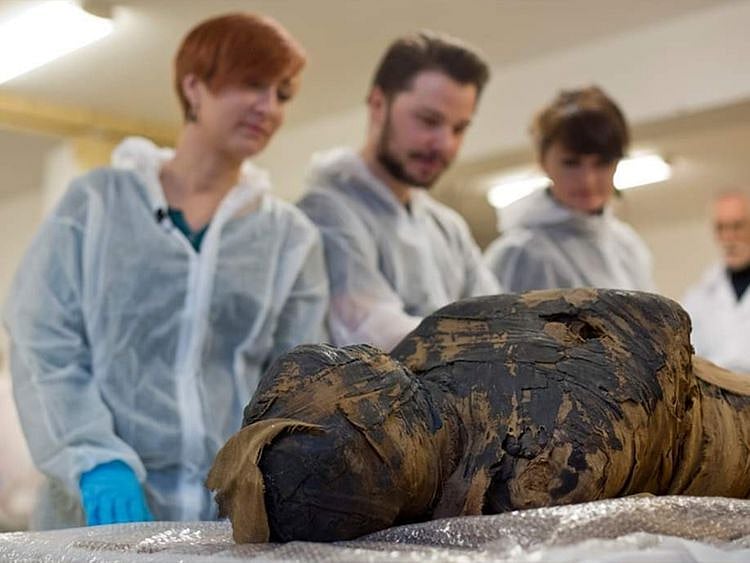Also In This Package
Egypt martial art enthusiasts eye the Olympics
Look: Egypt's 'Scorpion King' turns venom into money
Photos: Egypt races to free giant vessel in Suez Canal
Watch: Egypt to unveil 'portion' of 3,000-year old city
Photos: Train collision in Egypt kills at least 32
Egypt, UAE resume first Qatar flights since 2017
Warsaw: Polish researchers examining an ancient Egyptian mummy that they expected to be a male priest were surprised when X-rays and computer tests revealed instead it was a mummy of a woman who had been seven months pregnant.
The researchers said it’s the world’s first known case of such a well-preserved ancient mummy of a pregnant woman.
The mummy arrived in Warsaw in 1826 and the inscription on the coffin named a male priest. No examination until the current one had disproved the belief that it was a male.
“Our first surprise was that it has no penis, but instead it has breasts and long hair, and then we found out that it’s a pregnant woman,” Marzena Ozarek-Szilke, an anthropologist and archeologist, told The Associated Press. “When we saw the little foot and then the little hand (of the fetus), we were really shocked,”
They estimated the woman was between 20 and 30 years old and said the size of the baby’s skull suggested she was 26 to 28 weeks pregnant.
Significant finding
Their findings from the Warsaw Mummy Project of years of tests on this and other mummies at Warsaw’s National Museum were published this week in the Journal of Archaeological Science.
“This is our most important and most significant finding so far, a total surprise,” team member Wojciech Ejsmond of the Polish Academy of Sciences told the AP. “It opens possibilities of learning about pregnancy and treatment of complications in ancient times.”
The researchers say the excellent quality of the embalming suggests it could have been performed well before the first century B.C., as it is dated now.
Sign up for the Daily Briefing
Get the latest news and updates straight to your inbox
Network Links
GN StoreDownload our app
© Al Nisr Publishing LLC 2026. All rights reserved.
